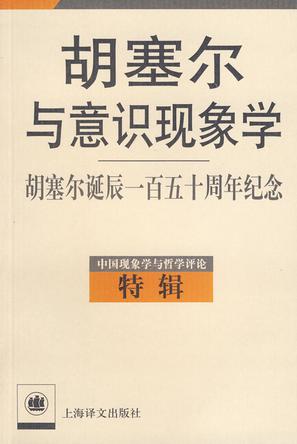-

胡塞尔与意识现象学
《胡塞尔与意识现象学:胡塞尔诞辰一百五十周年纪念》为“中国现象学与哲学评论特辑《胡塞尔与意识现象学》”,为纪念胡塞尔诞辰一百五十周年而出版,收入本辑的文章作者均为我国现象学研究领域的专家和国外研究现象学的著名学者,文集既包括国内外学者关于胡塞尔研究的最新成果,又有著名学者对现象学研究历程的梳理,同时包括了数篇富有创新性的硕士和博士论文,全面展示了国内外有关胡塞尔和现象学的研究状况,是一部具有极高学术价值的论文集。 -

The Phenomenological Mind
"The Phenomenological Mind" is the first book to properly introduce fundamental questions about the mind from the perspective of phenomenology. Key questions and topics covered include: What is phenomenology?; naturalizing phenomenology and the empirical cognitive sciences; phenomenology and consciousness; consciousness and self-consciousness, including perception and action; time and consciousness, including William James; intentionality; the embodied mind; action; knowledge of other minds; situated and extended minds; and phenomenology and personal identity. Interesting and important examples are used throughout, including phantom limb syndrome, blindsight and self-disorders in schizophrenia, making "The Phenomenological Mind" an ideal introduction to key concepts in phenomenology, cognitive science, and philosophy of mind. -

开端与未来
本书主要是对哲学上的现象学以及解构的论述。本书共分五大部分,其中导论主要介绍了开端与哲学的关系问题。第二部分主要讲了胡塞尔的现象学研究状况。第三部分主要讲了开端作为精神极其解构的问题。第四部分主要介绍马克斯、海德格尔以及德里达的哲学解构问题。第五部分主要讲了敌友的政治与解构问题。 -

现象学及其效应
现象及其效应:胡塞尔与当代德国哲学,ISBN:9787108022271,作者:倪梁康著 -

现象学思潮在中国
《20世纪西方哲学东浙史:现象学思潮在中国》主要内容简介:广义的现象学思潮是现代西方文化中最富创新力和影响力的哲学运动。《20世纪西方哲学东浙史:现象学思潮在中国》所阐述的就是这样一个广义现象学传人中国的历史、途径、成就和问题。它主要涉及了德国的现象学(胡塞尔、海德格尔)、法国存在主义(萨特、加缪、梅洛•庞蒂)和解释学(施莱尔马赫、狄尔泰、海德格尔、伽达默尔、利科尔、哈贝马斯、贝蒂、赫施),此书分三编对此分别加以详细阐述。其中每一编都要介绍每种学说的基本特征,它进入中国的历史和方式以及在这种传播中起过作用的人物、译作、论著和文章。此外,还做了一些评论。《20世纪西方哲学东浙史:现象学思潮在中国》的一个特点是,它的大部分是由从事于现象学研究的人士撰写的。这样,一方面,此书不止于外在的介绍,而是带有作者的研究体验;另一方面,它必然带有比较强的个人色彩或作者自己的学术视野的局限和影响;再有,此书所及范围只限于中国大陆的学术界。 -

Introduction to Phenomenology
This book presents the major philosophical doctrines of phenomenology in a clear, lively style with an abundance of examples. The book examines such phenomena as perception, pictures, imagination, memory, language, and reference, and shows how human thinking arises from experience. It also studies personal identity as established through time and discusses the nature of philosophy. In addition to providing a new interpretation of the correspondence theory of truth, the author also explains how phenomenology differs from both modern and postmodern forms of thinking.